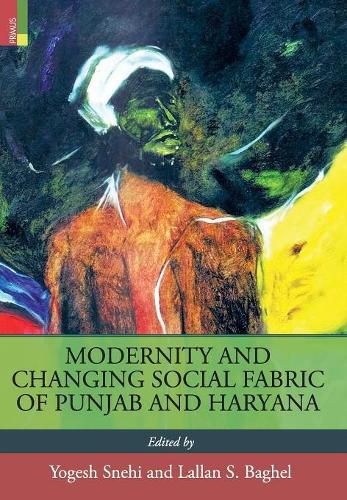Readings Newsletter
Become a Readings Member to make your shopping experience even easier.
Sign in or sign up for free!
You’re not far away from qualifying for FREE standard shipping within Australia
You’ve qualified for FREE standard shipping within Australia
The cart is loading…






This title is printed to order. This book may have been self-published. If so, we cannot guarantee the quality of the content. In the main most books will have gone through the editing process however some may not. We therefore suggest that you be aware of this before ordering this book. If in doubt check either the author or publisher’s details as we are unable to accept any returns unless they are faulty. Please contact us if you have any questions.
This eclectic collection of essays is embedded in both the past and present of the region’s complex interface with modernity. It is pertinent to note that despite the postmodernist critiques of the abstract notion of the term modern, modernity continues to be relevant for an understanding of contemporary social processes. Apart from theoretical debates, ‘modernity’ as a process and value system as well as a contrast to ‘tradition’ offers multiple interpretative possibilities which are deeply manifested in the everyday experience of the self and community. While acknowledging both enchantment and disenchantment with modernity, this volume explores the opportunities, contingencies and contestations of the process. Spatializing modernity, therefore, takes the concept to the arena of experience and practice, thereby bringing it closer to the script of the everyday: the contradictory and at times polemical positioning of access and denial, institutional and individual, urban and rural, trader/moneylender and peasant/ zamindar, Jat and Dalit (in context of landownership and access to wealth), and erotic/gender (urban) and ideal (rural). These and other similar themes involve self-positioning and Othering. Modern, modernity and modernization are, therefore, competing, contradictory and overlapping concepts that get situated around the narratives of power, prestige, entitlement and access.
$9.00 standard shipping within Australia
FREE standard shipping within Australia for orders over $100.00
Express & International shipping calculated at checkout
This title is printed to order. This book may have been self-published. If so, we cannot guarantee the quality of the content. In the main most books will have gone through the editing process however some may not. We therefore suggest that you be aware of this before ordering this book. If in doubt check either the author or publisher’s details as we are unable to accept any returns unless they are faulty. Please contact us if you have any questions.
This eclectic collection of essays is embedded in both the past and present of the region’s complex interface with modernity. It is pertinent to note that despite the postmodernist critiques of the abstract notion of the term modern, modernity continues to be relevant for an understanding of contemporary social processes. Apart from theoretical debates, ‘modernity’ as a process and value system as well as a contrast to ‘tradition’ offers multiple interpretative possibilities which are deeply manifested in the everyday experience of the self and community. While acknowledging both enchantment and disenchantment with modernity, this volume explores the opportunities, contingencies and contestations of the process. Spatializing modernity, therefore, takes the concept to the arena of experience and practice, thereby bringing it closer to the script of the everyday: the contradictory and at times polemical positioning of access and denial, institutional and individual, urban and rural, trader/moneylender and peasant/ zamindar, Jat and Dalit (in context of landownership and access to wealth), and erotic/gender (urban) and ideal (rural). These and other similar themes involve self-positioning and Othering. Modern, modernity and modernization are, therefore, competing, contradictory and overlapping concepts that get situated around the narratives of power, prestige, entitlement and access.